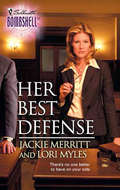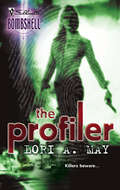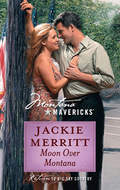Das Buch kann nicht als Datei heruntergeladen werden, kann aber in unserer App oder online auf der Website gelesen werden.
Buch lesen: "Hideaway"
Critical Praise for Hannah Alexander
“If you’re one of the millions of people who either watch ER on television, or read any of the Mitford books by Jan Karon, let me introduce you to your new favorite author: Hannah Alexander.”
—Terri Blackstock, author of the Cape Refuge series
“The Hannah Alexander writing team is masterful at creating places so real you’ll be looking for them on the map; characters so endearing you’ll think of them as friends, and struggles so compelling and genuine that you’ll identify with each one. Most importantly, the truth of God’s intimate involvement in lives shines through on every page they write.”
—Deborah Raney, author of After the Rains
“Hannah Alexander stands as one of the most talented storytellers in Christian fiction today. With a proven record of irresistible characters and stories that warm the heart, Hannah Alexander’s titles are always on my ‘must-read’ list.”
—Carol Cox, author of Yellow Roses
“Hannah Alexander creates the kind of characters you think about for days. I’ve almost been tempted to pray for them!”
—Debra White Smith, author of The Key
“Amidst the fascinating intricacies of an E.R. setting, the author weaves the lives of characters as they struggle with down-to-earth issues. Underlying it all is a rich sense of God’s faithfulness.”
—Sally John, author of Just To See You Smile
“Hannah Alexander takes her readers for a pulse-quickening ride while breathing life and intrigue into the mysterious world of medicine.”
—Kristin Billerbeck, author of As American as Apple Pie
“Hannah Alexander’s stories are never predictable but keep me on the edge of my seat rooting for her characters. I eagerly watch for her newest offerings and am never disappointed!”
—Collen Coble, author of Wyoming
“I always look forward to the next Hannah Alexander novel. Her books always have great characters and page-turning suspense. Keep it up, Hannah!”
—Lyn Cote, author of Autumn’s Shadow
Critical Praise for Hannah Alexander’s Previous Novels
Sacred Trust:
“Alexander is great at drawing the reader into her storyline and keeping them hooked until the resolution of the plot.”
—Christian Retailing
Solemn Oath:
“…Solemn Oath absolutely hit the ball out of the park. Hannah Alexander is going to have a hard time writing fast enough to keep up with reader demand.”
—Debi Stack, author of Martha to the Max!
Silent Pledge:
“Silent Pledge is a rare find.”
—Harry Lee Kraus, M.D., author of Serenity
“I found a gaggle of caring, interesting people who stole my heart with their struggles and made me cheer with their triumphs. Bravo!”
—Lisa Samson, author of Women’s Intuition
Second Opinion:
“Watch out—the newest Hannah Alexander book is another suspense-filled story that will captivate you from page one! Second Opinion has all the goodies I’ve come to expect from this outstanding author: a fast pace, vibrant characters, plot twists, engaging dialogue, realism, intelligence, humor, romance, and surprise endings. There’s no second guessing with Second Opinion. It’s an irresistible page-turner that will leave you begging for the next masterpiece by Hannah Alexander.”
—Debi Stack, author of Martha to the Max!
Necessary Measures:
“Necessary Measures is true-to-life ER action that envelops and engages. Hannah Alexander paints a broad and detailed picture of a small town emergency room and the relationships of those who serve there. Great family dynamics and realistic professional tension.”
—Kristen Heitzmann, author of A Rush of Wings
“Necessary Measures left me with chills. Hannah Alexander possesses an incredible storytelling gift that makes it impossible to read just a little. Necessary Measures becomes your constant companion until you’re finished, and even then, it leaves its mark.”
—Kristin Billerbeck, author of As American as Apple Pie
Hideaway
a novel
Hannah Alexander

MILLS & BOON
Before you start reading, why not sign up?
Thank you for downloading this Mills & Boon book. If you want to hear about exclusive discounts, special offers and competitions, sign up to our email newsletter today!
Or simply visit
Mills & Boon emails are completely free to receive and you can unsubscribe at any time via the link in any email we send you.
This book is dedicated to the Great Physician—
For my Father’s will is that everyone
who looks to the Son and believes in him shall have
eternal life, and I will raise him up at the last day.
—John 6:40
Contents
ACKNOWLEDGMENTS
Chapter One
Chapter Two
Chapter Three
Chapter Four
Chapter Five
Chapter Six
Chapter Seven
Chapter Eight
Chapter Nine
Chapter Ten
Chapter Eleven
Chapter Twelve
Chapter Thirteen
Chapter Fourteen
Chapter Fifteen
Chapter Sixteen
Chapter Seventeen
Chapter Eighteen
Chapter Nineteen
Chapter Twenty
Chapter Twenty-One
Chapter Twenty-Two
Chapter Twenty-Three
Chapter Twenty-Four
Chapter Twenty-Five
Chapter Twenty-Six
Chapter Twenty-Seven
Chapter Twenty-Eight
Chapter Twenty-Nine
Chapter Thirty
Chapter Thirty-One
Chapter Thirty-Two
ACKNOWLEDGMENTS
Long ago we realized that any success in our efforts to write a readable novel was dependent on the goodwill of many people. Many thanks to Joan Marlow Golan, our editor, whose enthusiasm for this work has been a great encouragement. We also thank our agent, Karen Solem, whose wisdom and sweet spirit have guided us.
Thanks to Lorene Cook (Cheryl’s mom) who continues to put feet to her prayers for us.
Thanks to Ray and Vera Overall (Mel’s mom and dad), who never cease to encourage.
Thanks to our writing families online, ChiLibris and WritingChambers, who touch us from across the country and around the world.
Thanks to Jennifer Whitt, who was willing to allow us to pick her brain for her expertise with dreadlocks.
Thanks to C. J. McCormick, DVM, who lent us access to his vast knowledge of the peculiarities of animals.
Thanks to James Scott Bell, author and friend, who gave us his legal expertise.
Thanks to Jon Suit, former mayor Monett, who was able and willing to tell us far more than we will ever understand about small-town politics.
Thanks to Barbara Warren of Blue Mountain Editorial Service, for the nice slash and repair job, and for the input on gardening.
Thanks to Brenda and Doug Minton, for having a heart for the children most in need—and for having a garden that refuses to grow beneath the walnut trees.
Thanks to Jackie Bolton, who understands the psyche of a teenager—because her own heart is still young.
Thanks to Jack and Marty Frost, who never let up on us to do our best, and who quickly forgive us when we fail, time and time and time again.
Thanks to Jim and Louise Brillhart and Ardis Bareis for allowing us to take your names in vain.
We wish to give credit where it is due, but any mistakes or discrepancies are purely our own.
We earned them, we intend to keep them.
Chapter One
The scream of an ambulance bounced through the mauve-and-burgundy corridors of the Missouri Regional Hospital on the west side of Columbia. An elderly man moaned. A baby’s cry stung the air through the center of the eight-room emergency department.
Dr. Cheyenne Allison slipped into the untidy doctor’s call room, closed the door and locked it.
If only she could collapse onto the bed and stay there for a week. Or the whole month of March.
Ordinarily, she could breeze through a twelve hour shift and still have enough energy for a nighttime jog along the Katy Trail. But today, at 2:00 p.m. she already felt as if she’d been on duty for twenty-four hours without a break. In spite of her flu shot, in spite of the antiviral she had begun soon after experiencing the first symptoms, she felt like the framed green-and-purple blob on the wall that some idiot had mistaken for art when this department had been remodeled.
She had a full-blown case of influenza.
Cheyenne sank onto the chair and pressed the left side of her face against the smooth coolness of the desk. If only she could stay here until shift change at seven.
The telephone buzzed above her head. Without opening her eyes, she reached up and punched the speaker button. “Yes.”
“Dr. Allison? How you doing, hon?” It was Ardis Dunaway, the most seasoned nurse in the hospital and a good friend.
“You don’t want to know,” Cheyenne said. “Did you get those orders on bed one?”
“I got ’em. You need to see the baby in five. Fussy, with a fever of 103.7 in triage.”
Cheyenne resisted the urge to request a physician replacement. “I’ll be there. Is the cefotaxime hanging on Mr. Robb yet?”
“Got it, and the shoulder X-ray on the girl in five.”
“Did I hear an ambulance a minute ago?”
“That’s right, it sped right on past us to University Hospital.”
Good. Why couldn’t they do that with the rest of their patients today? Divert them all to the big boys. It amazed Cheyenne that this place stayed so busy, with two trauma centers only moments away. Apparently, the homey atmosphere here drew them in.
“I’m coming, Ardis.”
Ninety seconds later, wearing a fresh mask to protect her patients from any stray germs, Cheyenne checked out a fussy infant with a red ear. As she used a bulb insufflator to blow air onto the eardrum, the baby’s cries blended with the wail of another siren. Must be a busy day for University and Boone County.
As Cheyenne reassured the mother and comforted the child, the wail outside grew louder.
It stopped. Too close.
When the siren died the baby fell silent, and his mother relaxed noticeably.
Moments later, Ardis stepped to the exam room door. Gone was the motherly grin of the seasoned nurse. “Dr. Allison, we need you in room three.”
“Coming.” Cheyenne patted the mother’s shoulder, jotted a quick order for the nurse and followed Ardis down the hallway. “What’s up?”
“Ambulance brought us a chest pain patient. Twenty-eight years old.”
“Suspected drug abuse?” For someone so young, that was the norm.
“The attendant says it looks more like a panic attack, and I was told she’s been calling for you by name.”
“For me? What’s her name? Did she say why—”
“She won’t give the attendants any information,” Ardis said. “Nobody told her you were here, she just asked for you. I thought you’d want to see her quickly.”
Cheyenne entered the exam room behind the nurse. An ambulance attendant hovered next to the patient with his chart, checking blood pressure as another nurse transferred EKG leads from the ambulance monitor to the hospital’s equipment.
The patient’s trembling hands covered her face. Silky black hair, as dark and glossy as Cheyenne’s, fanned across the pillow.
Cheyenne stepped to the side of the bed and touched the woman’s shoulder gently. “Hello, I’m Dr.—”
The hands fell away.
Cheyenne caught her breath. “Susan?”
Tears dripped down sharply chiseled, honey-tanned cheeks. Cheyenne’s baby sister reached for her.
“Oh, Chey, I’m so scared. My chest hurts. What’s happening?”
Dane Gideon stepped down from the broad front porch of the ranch house, studying the line of dust clouding the atmosphere above the quarter-mile drive that led from the highway. The early March sunlight dazzled nearby Table Rock Lake with shafts of jeweled colors that built a prism around the small village of Hideaway along the opposite shore.
The sound of tires crunching gravel rippled the peaceful silence as the car pulled into the parking area. Dane saw the dark outline of the passenger. The kid had dreadlocks, skin the color of untouched espresso, eyes narrowed with obvious apprehension—the typical mask of disillusionment in a face too young to bear it.
Clint, the social worker who sometimes seemed to haunt this place, parked beneath the bare oak tree and nodded to Dane with a grim smile. He spoke to the passenger. The teenager shook his head and looked away.
Dane read resentment in every movement.
Clint got out of the car, leaving the door open. “We’ve got another reluctant one for you,” he said, loudly enough for his voice to carry back to the car. “Can’t seem to convince him this place’ll be like summer camp.”
Dane grinned. “Or boot camp.”
Clint took Dane’s hand in a firm shake. “Thanks for accepting Gavin. Knew you’d be perfect for him. Good kid.”
The “good kid” flinched, shot a glare at Clint, crossed his arms over his chest.
“His room’s ready,” Dane said. “He’s bunking with Willy.” Clint had escorted Willy here four months ago, under similar conditions.
Richard Cook came striding around the side of the large, two-story house. Apron in place, hair combed back in a wispy gray cap, the older man—who answered only to the surname that also described his job at the ranch—walked across the barely green lawn and nodded to Dane. Willy came rambling up from the barn, obviously curious about his new roommate and—just as obviously—trying not to show it.
Dane grinned at the skinny fourteen-year-old who had taken so well to ranch life. Maybe he would help Gavin settle in.
While the social worker turned to greet Cook and Willy, Dane stepped to the car, slid behind the steering wheel and closed the door.
Gavin breathed with studiously quiet drags, as if the activity caused him pain.
“I’m Dane Gideon.”
Only a short break in breathing rhythm indicated the teenager had heard.
Knowing Clint, Dane surmised that the fifteen-year-old had been filled in on all aspects of his new home, from the duties he would have on this thriving ranch, to the size of the house, to the school he would be attending. No doubt he’d also been given thumbnail sketches of the other “inmates” at the ranch.
With a quick glance over his shoulder in the direction of the town, Dane allowed himself a moment of doubt. Was he taking on too much this time?
“You going to tell me your name?” he asked the teenager.
The kid’s lips parted, his throat muscles worked, but no sound came out. He cleared his throat and turned to Dane with a garish smile. “Howdy, partner,” came the mocking cadence of his surprisingly baritone voice. “You can call me Blaze. It’s who I am, it’s what I do according to my mama—and mamas never lie, do they?” Bitterness dripped from his words.
“Depends. Did you set the fire?”
The smile sifted from his face like wisps of sand blown from the surface of a rock. “Think I’m stupid? If I say I didn’t, you’ll call me a liar. If I say I did, I’d be lying.”
“Then why don’t we talk about that later? Right now, let’s unload your things and show you around. Your roommate left school early so he could meet you as soon as you arrived. Since this is Friday, you’ll have the weekend to settle in and learn your chores before we enroll you in school.”
The kid’s scowl deepened. “Not going to no school.”
“You don’t have a choice, and neither do I, Gavin.”
“Blaze! My name’s Blaze. It’s what my—”
“You were acquitted.”
“You want to tell me what I’m doing here, then?”
“You wouldn’t be at this ranch if you’d been found guilty of a crime.”
“But I’m not home with my mama, am I?”
It was Dane’s turn to be silent. That was one of the most difficult things he had to deal with here—boys who felt unloved, unwanted.
“You got that straight,” Gavin said. “My mama’s judge and jury on this case. Long as I’m here, my name’s Blaze.”
Cheyenne pressed several facial tissues into her sister’s left hand. “I know it’s scary, Susan, but try to relax so we can get a good reading on your heart. You’re going to be fine. I picked up on the murmur right away—I think it’s your mitral valve problem, but I want to make sure.”
Susan nodded, blinking back tears.
When Cheyenne was in eleventh grade and Susan still in elementary school, Cheyenne had discovered her baby sister’s mitral valve prolapse with her new Christmas present from her parents—a stethoscope. From that time on, Cheyenne had taken Susan’s condition on as a personal responsibility. It was what had motivated her through those first horrendous two years of med school.
She still took that responsibility seriously.
Susan’s hand trembled as she mopped her face with the tissues. “It’s never hurt like this before, Chey.”
“Why don’t you tell me what led up to it? Heavy exercise? Did something happen that upset you?”
Susan hesitated, then nodded, glancing at the others in the room. “I guess you could say that,” she murmured.
Cheyenne respected her sister’s unspoken plea for privacy. She glanced at Ardis, who stood in her usual spot, checking the monitor while the tech from Respiratory handled the EKG machine.
The tech handed the printout to Cheyenne, then disconnected the leads from Susan’s chest. “Want me to leave the machine in here, Dr. Allison?”
“Yes, we’ll do another test after the heart rate slows down and we get rid of the muscle-tremor artifact.” Cheyenne gave her sister a reassuring grin. “It looks good, but we need to find out what’s causing this.”
“I’ve never felt like this before, Chey. I’m sorry to be such a big baby, but it scared me.”
“You’re no baby. Are you sure the pain doesn’t radiate to your jaw or your arm? Nothing in your back?”
“My hands feel tingly.”
“Both of them?”
Susan flexed her fingers. “Yes.”
“That could be from hyperventilation.”
“Is this what they call a panic attack?”
“It could be.” Panic attack would have been Cheyenne’s diagnosis if this were anyone else. But Susan was not one to panic. So what had sent her heart into overdrive?
Susan inhaled deeply and closed her eyes, but they flicked open again when the outgoing EKG tech greeted the incoming radiology tech, who pushed a portable X-ray machine in front of him.
“Susan, we’re going to get a picture of your chest,” Cheyenne explained. “Just relax. You know I’ll take care of you.” She leaned over the bed and held her sister’s gaze.
Susan took another deep breath and lay back, the midnight strands of her shaggy-cut hair splaying across the pillow. She looked up at Cheyenne, dark eyes filled with trust.
Cheyenne squeezed her arm. “You want me to have the secretary call Kirk?”
“No!” Susan’s head raised from the pillow once more. “Please, I don’t want him to know about this.”
“It’s all right,” Cheyenne said. “I won’t call.” She stepped out of the room long enough for the tech to get the X ray of Susan’s heart—just in case. “It’s going to be okay,” she called reassuringly from the doorway.
What was the problem between Susan and her husband?
Chapter Two
Dane stood beside Clint at the far edge of the yard and watched Willy and Gavin walk toward the barn—Willy’s typically talking hands graced the air to emphasize whatever verbal point he was trying to make with Gavin.
What a contrast—the scrawny fourteen-year-old with closely cropped brown hair and glasses was nearly a head shorter and fifty pounds lighter than Gavin. Where Gavin had muscles, Willy had skin. Where Gavin had dreadlocks, Willy had—practically—skin.
“The dreadlocks will take some adjustment,” Dane said.
Clint chuckled. “For Blaze or for you?”
“For Hideaway. And I refuse to call him Blaze. It’s derogatory.”
“You’ve been living out here in the sticks too long, Dane. You need to get to the city more often.”
“No, thanks.”
“Still hiding out?”
“I’m not hiding from anything.” Dane used his “back off” voice as he nodded toward Gavin. “He’s already got two problems fitting in.”
“Do I want to hear this?”
“He’s a ‘ranch kid,’ and he’s got dark skin.”
“Hold it.” Clint made a show of covering his ears. “It isn’t politically correct for me to hear this.”
“You don’t like the term ranch kid?”
“You know what—”
“Deal with it. That’s the way it is here. When I came to Hideaway, I moved back twenty years in time—in some ways, more like fifty. Many of the natives have been here for two or three generations. They hate change. Many of them are still leery of me because I’m divorced with no children of my own. And it’s no coincidence that everyone within a ten-mile radius of Hideaway looks askance at Jason because he has a deeper tan than most of the natives.”
“Then move somewhere else. Take the kids with you. You can afford that.”
Dane shook his head. “I belong here.”
Clint snorted. “I suppose God told you that.”
Dane ignored his friend’s cynical tone. “We all have our place in life. I’ve found mine.” He watched with growing interest as Willy introduced Gavin Farmer to Gordy, the most cantankerous cow of the herd, through the barn lot fence. Gordy was short for Gordina—the name of a bossy woman he had admired in his church.
“A perfect place,” Clint murmured. “Taming wild teenagers to become model citizens? Putting up with Austin Barlow every time he wants to make you a target for one of his special vendettas?”
“I hate to admit this, but I’m enjoying the challenge of those vendettas. Austin isn’t invincible.” Dane gestured toward Gordy. The cow stood close to the fence, allowing Gavin to scratch her ear. “Would you look at that? I’ve never seen her do that before.”
“The kid has a way with animals. He worked with his father in his veterinarian practice.”
“I knew from the report his father was a vet, but it didn’t give much information about the mother,” Dane said. “Any insights there?”
“All I know is the parents were long estranged, and that she had her own demanding job. Wouldn’t even leave it long enough to collect her son when his father was killed in the wreck last year. Social services stepped in, suggested foster care, placed him and he ran away. His mother finally, reluctantly, agreed to take him, but three weeks after he moved in with her, their house burned down.”
“None of that’s in the report.”
“We don’t always put everything in those reports, because we don’t always have all the information we need.”
“So what does the kid’s mother do?”
“She’s a manager for a fast-food chain down in Arkansas. She does pretty well, seems efficient at her job, but when it came to Gavin, she couldn’t cope.”
“So she claimed Gavin deliberately set fire to their house?” Dane exclaimed. “Does she have any reason to believe that?”
“Only an episode when he accidentally set the living room on fire when he was a child.”
“Nothing since then?”
“Not on record.”
Dane gave him a quick look. “That isn’t reassuring.”
“He’s an innocent kid caught in a mess, Dane.”
“You’re sure? I’ve got other kids to think about, and the town is always watching—”
“Give him some time and see what you think,” Clint said. “Anyway, his mom isn’t able to keep him. I feel he needs a mother, though. Frankly, you weren’t my first choice for him—you don’t even have a woman on the ranch, unless you count Gordy.”
“She’s a good mama. Her calves always grow well.”
“Think you can work one of your miracles, Dane?”
“I don’t work miracles.”
“You seem to know Somebody who does.”
Cheyenne wrote discharge orders for two patients, washed her hands and replaced her mask. When she entered Susan’s exam room again, no other medical personnel were there.
Cheyenne closed the door behind her and went to her sister’s bed. “How are you feeling?”
Susan nodded. “Better. It doesn’t hurt as much. By the way, what’s with the mask?”
“Flu.” Cheyenne slumped onto the stool beside the bed. “I don’t want to risk passing it on to a patient.” She tapped the mask with her fingers. “This is just a precaution. I don’t feel too bad.” Liar. You feel wretched. “Your lab reports all look good, but let’s get a repeat EKG before I discharge you. Now that your heart rate is slower and you aren’t shaking so badly, we’ll get a better reading.”
Susan nodded.
“Speaking of shaking,” Cheyenne said, “what could have set this off? I’ve never known you to have a panic attack before.”
“So you think that is what happened?”
A question instead of an answer. “I don’t know for sure, but that could have been what disturbed your mitral valve. I’ve already scheduled an outpatient echo for you for next Monday.”
“Oh, Sis, do we have to do that? I don’t really want Kirk to know about—”
“We have to make sure that valve isn’t going to cause any major problems.” Cheyenne touched Susan’s left hand. “I’m not taking any chances with you. If you’re worried about Kirk knowing, I’ll have the hospital send me the bill.” But why shouldn’t Susan’s husband know?
“No, don’t do that. It’s…it isn’t that bad.”
Cheyenne leaned forward. If it wasn’t that bad, why was Susan suddenly avoiding eye contact? “I know you don’t like to take medication, but I’ve ordered something to calm you down.”
“A tranquilizer?”
“Yes. You won’t have to worry about any more needles, since you already have the IV. It won’t fix the problem, but it might help make everything more bearable until we can find the real culprit.” But of course the real culprit was Kirk Warden—Cheyenne had known that for some time.
Susan swallowed, then nodded. “Could you give me something…to take with me?”
“I’ll write you a script.” Cheyenne hesitated. “You’ll need a ride home. I’d let you take my car, but you can’t drive under the influence of this medication. If you can’t call Kirk—”
“I’ll get a taxi. Can I work? I have an appointment with a client whose house I’m decorating this afternoon. She’s a neighbor who lives just three houses west of us, so I won’t have to drive there.”
“Sure, you can work…if your client doesn’t mind a little drug-induced creativity.” Cheyenne got up, battling a wave of nausea. “Since you’re getting a taxi, I’ll dispense some tablets for you here so you won’t have to stop at a pharmacy.”
“Thanks.” Still no eye contact.
Cheyenne leaned closer. “Honey, what’s going on with you?”
Susan dabbed at her face with a tissue. “It’s no big deal, Sis, okay?”
“Wrong answer. I’m your doctor right now, not your sister. You don’t have panic attacks for ‘no big deal.’ What happened with Kirk today?” Please talk to me, Susan. The sound of another ambulance siren barely reached them from the highway.
“We had a little disagreement over the telephone,” Susan glanced toward the closed door. “Are you sure no one can hear us?”
“Positive.”
“I decided to file my taxes separately from his this year. When I told him, he went ballistic. I wouldn’t have done it, except I’ve been comparing notes with his secretary, and we don’t jibe. If he’s cheating on taxes, I don’t want any part of it.”
Cheyenne closed her eyes, glad the mask over the lower portion of her face would conceal some of her dismay.
“If he finds out she talked to me, he’ll fire her,” Susan said.
Anger intensified Cheyenne’s nausea. For her sister’s sake, she had put up with Kirk’s borderline antagonism since he and Susan had become engaged eight years ago. Cheyenne had sat through countless uncomfortably silent dinners, had timed her visits to the house when Kirk would be at work, had run interference when Mom and Dad flew up from Florida to visit. Occasionally, Susan spent the night with Cheyenne, when Kirk was out of town on business—he had his own computer networking firm.
“The stress with Kirk could be a trigger for your chest pain,” Cheyenne said.
“I’m not sure what I can do about it.”
Cheyenne decided not to mention the obvious solution. “What else is going on with you?”
Susan looked down at her hands, picking at her cuticles. “Kirk isn’t…always happy with me.”
“Happy in what way?”
“The problem is, he thinks I’ve become too independent with my business, and he’s decided to tighten the reins.”
Those weren’t reins, they were more like screws. “In what way?” Cheyenne asked gently.
Susan closed her eyes and raised a hand to her face—a shaking hand. “He’s taken all the money out of our joint account and placed them in a different bank, using his name alone.”
Cheyenne willed away her own outrage. Susan couldn’t handle that right now. “Do you think he’s planning to divorce you?”
“We don’t believe in divorce.”
We? Was Kirk cheating on his taxes but still pretending to be some upstanding, good “Christian” man? What a laugh.
“I just don’t know what to do next,” Susan said. “It’s so…so hard to realize that the man I married isn’t the man I’m married to. You know what I mean?”
Cheyenne nodded, though she didn’t really know. Her whole life had been caught up in her career, with only one serious relationship. That had ended in pain when the man she loved couldn’t endure her hours—or her success. “You could move in with me, Susan. You’ll never have to put up with that kind of treatment while I’m alive.”
“I’m the one who got myself into this mess,” Susan murmured. “I’ll stick it out.”
Cheyenne bit her tongue and remained silent. Blast the too holy standards of Susan’s religion. Didn’t anyone at their church see what a hypocrite Kirk was?
“If you need money to get you by—”
“Chey, I’m doing fine.” Susan touched Cheyenne’s arm. “Thanks. It seems like half the neighborhood has decided to redecorate, and they’re calling me to do it. I’ve opened a bank account in my name alone. I’ll be fine. Maybe Kirk’s just going through a bad time right now, and I…I need to be more understanding and…pray for him.”
Cheyenne clamped her teeth together. Susan could exercise her Christian principles and turn the other cheek all she wanted, but Cheyenne wasn’t—








